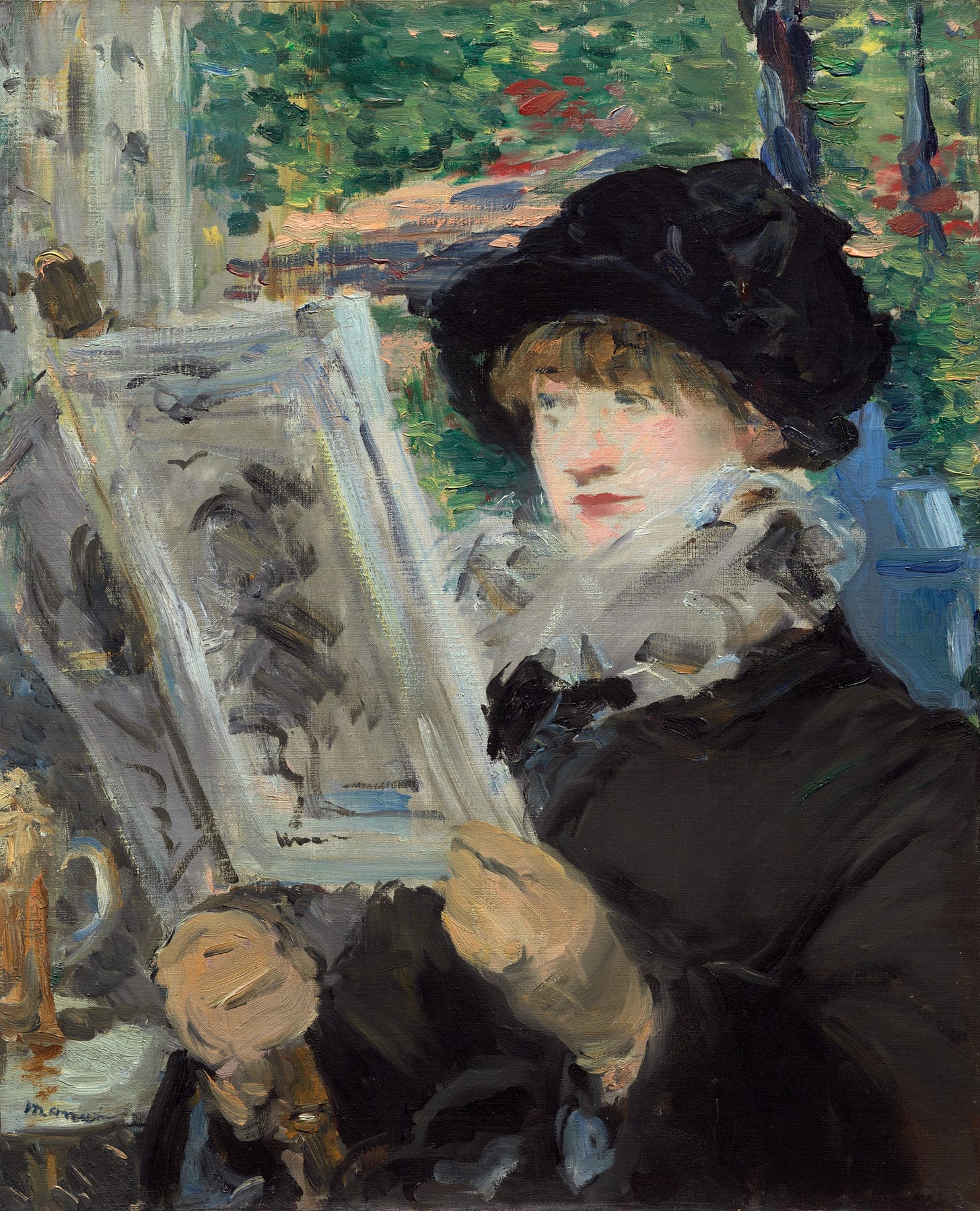Who Makes Us Readers?
On discovering a passion for storytelling, reckoning with the devaluation of the humanities, and the people who help us along that journey.

One breezy summer day, after packing for a family trip, I wandered into my parents’ bedroom and found a book resting on my mother’s nightstand.
This was not unusual—there are, at any given moment, several books piled on my mother’s nightstand. But this volume instantly caught my eye. The cover featured an illustration of a black and white circus, perched in the palm of a woman’s hand. The circus teetered precariously. At any moment, with one slip of her fingers, the lofty clock tower and billowing tents would come crashing down. The Night Circus by Erin Morgenstern.
“Mom? Did you just buy this?”
At the sound of my voice, my mother emerged from her bathroom with a makeup bag in hand. “Buy what?”
I held up the curious volume.
“Oh, that. I got it for our trip.” She paused. “Aren’t you supposed to be doing your summer reading for school?”
That was true. Summer break was nearly over, and I had only finished the fi…



